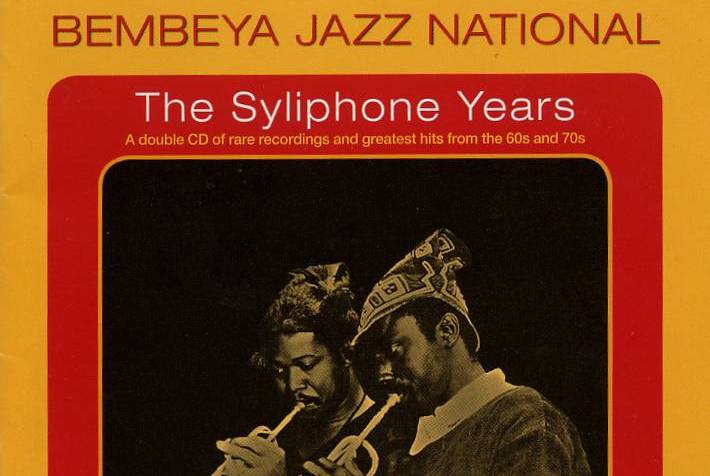None of the dance bands prominent during the Sékou Touré era can rival Bembeya Jazz in terms of success and enduring popularity. Founded in 1961 by Emile Condé, a Guinean entrepreneur, the band was originally called Orchestre de Beyla, after the small town in Guinea’s forest region in which they lived. In 1962 and 1964, they represented their region at the national artistic competition Biennale and won both times.
Clearly too popular to remain in a remote province, they were called to Conakry in 1966, where they were crowned with the title Orchestre Nationale Bembeya Jazz. Like most dance bands of the time, Bembeya Jazz performed mainly Latin-flavoured intepretations of Mande classics, yet they infused their versions with artistic imagination and a sweet swing that few of their contemporaries could rival. The group’s original lead singer, Aboubacar Demba Camara, became Guinea’s first true superstar. His sedate, honeyed voice set him apart from the griot singers that fronted other bands, and lent Bembeya Jazz a unique appeal. It also provided a beautiful contrast to the excited buzz of Sékou Diabaté’s guitar playing.
At the FESTAC in Lagos in 1977, one of many pan-African festivals where Bembeya Jazz appeared as a main act, this supremely gifted guitarist was given the title “Diamond Fingers”. The epithet stuck, and is still as appropriate as ever. “Diamond Fingers” possessed a dexterity that no other instrumentalist had. ‘We all remained standing, but he could leave our line and perform all sorts of stunts while playing those extraordinary solos’, says Bembeya Jazz’s trumpeter Achken Kaba. Nothing proves this better than his legendary piece “Petit Sekou”, a celebration of his unique talent, that consists of an intricate jigsaw of dazzling guitar solos, punctuated by infectious laughter.
Bembeya Jazz recorded ten albums on the Syliphone label, among them the artistically daring Regard Sur Le Passé (1968), and their acclaimed live album 10 Ans De Success (1971). In 1973, the band experienced a tragic shock. While on tour in Senegal, Demba Camara tragically died in a traffic accident. The Guinean nation went into mourning. Bembeya Jazz only began to recover from the loss when the young Sekouba Bambino Diabaté joined them in 1976. Guinea’s dance-band era ended with Sékou Touré’s death in 1984, which sent Bembeya Jazz into a state of hibernation.
Though the group never officially disbanded, they maintained a low profile both in and outside Guinea, and were gradually superseded by younger generations of artists. But in 2002, they set out to conquer the world once more. Several members of the original line-up, among them Sékou “Diamond Fingers” Diabaté, and a few select newcomers recorded the album Bembeya and presented it to audiences worldwide on their first international tour for years.







